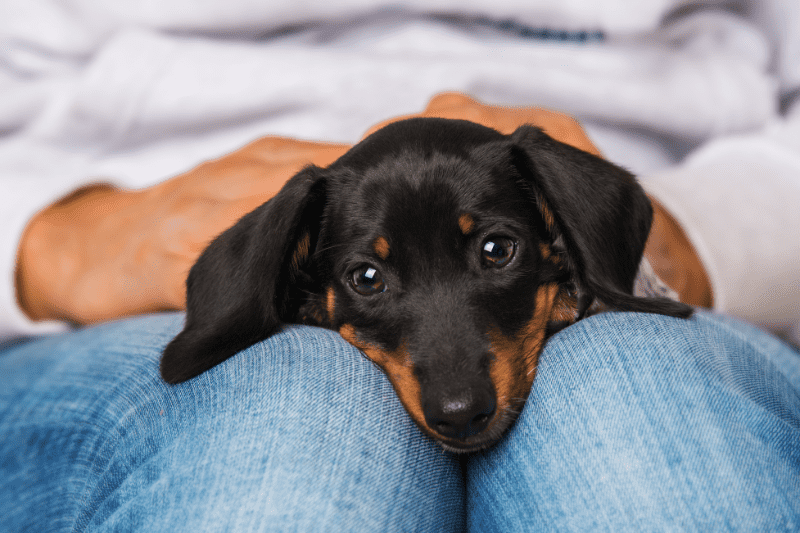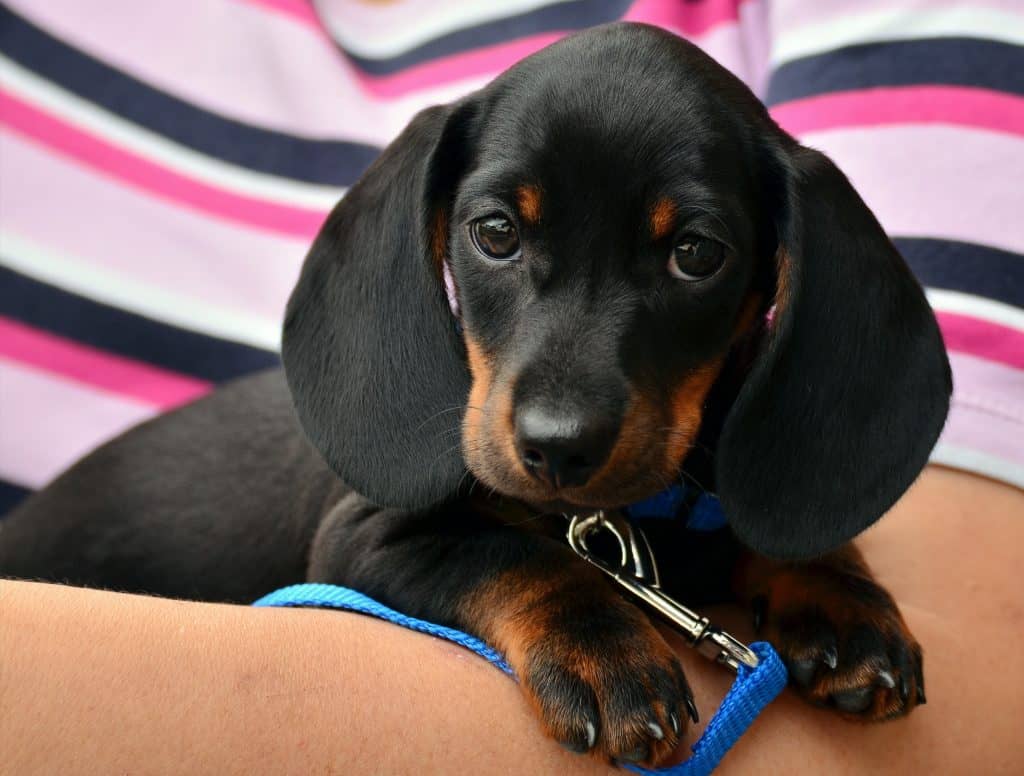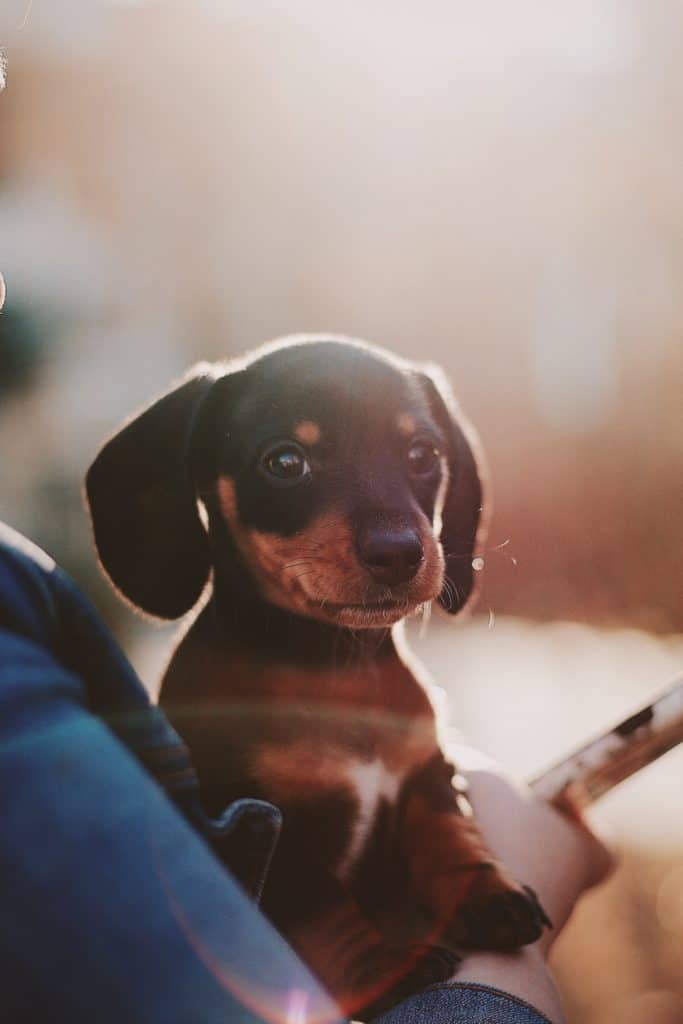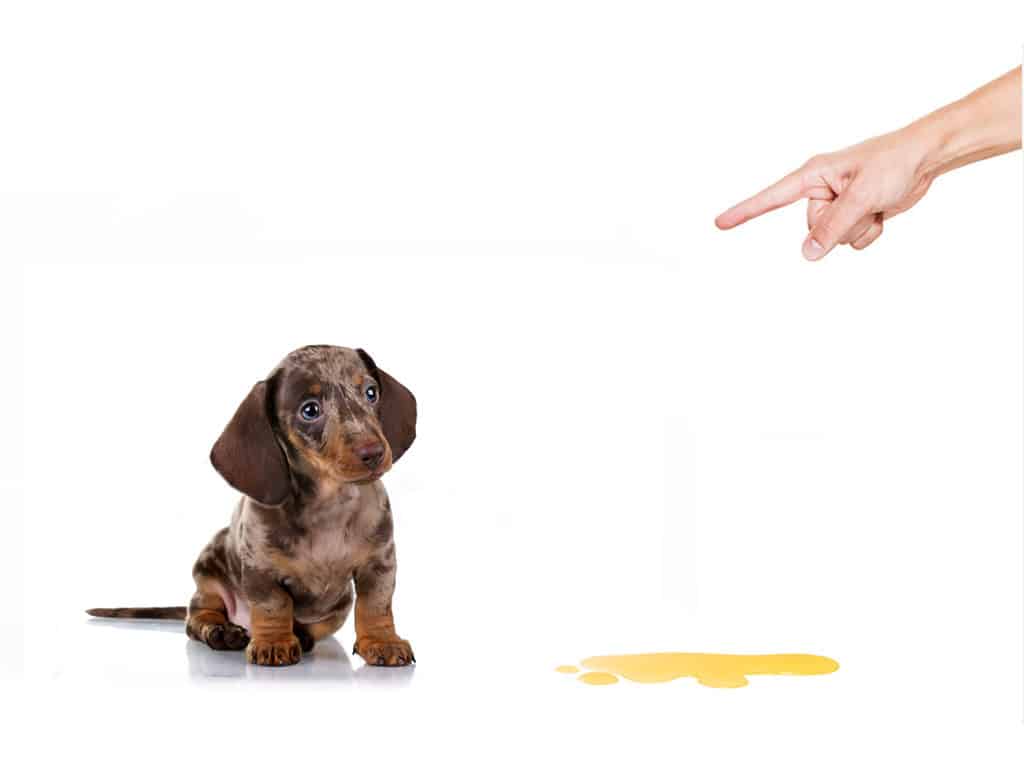
- Caring for your dachshund puppy
- What do I need to do before I get a Dachshund?
- What to expect from a Dachshund puppy?
- Is it hard to look after a Dachshund puppy?
- What do I need to buy for my Dachshund?
- What do I do when I bring my Dachshund puppy home?
- How to Care for a Dachshund Puppy
- What food should I give my Dachshund puppy?
- Tips for training Dachshund puppies
- How to socialize your Dachshund puppy
- How to potty train your Dachshund puppy
- Conclusion
Caring for your dachshund puppy
Are you a new Dachshund owner or are you considering getting a Dachshund puppy? Get ready for a fun, loyal, and loving pet!
Dachshunds are the cutest, most adorable, and most loyal dogs out there. but they can also be very mischievous and stubborn. And like all breeds, they are prone to some common breeds health problems, such as IVDD and diabetes.
But taking some precautions and care. these problems can be avoided and your dachshunds will be by your side for many years. Dachshunds can be quite long-lived.
In this guide, we will discuss several topics regarding Dachshund puppy care and training. We will also offer tips on preparing for your Dachshund’s arrival, necessary supplies, and how to care for and train the puppy.
What do I need to do before I get a Dachshund?
Before getting a Dachshund puppy, it’s important to do your research and prepare for the responsibilities of owning a pet. This includes researching the breed’s characteristics, temperament, potential health issues, and care requirements.
It’s also important to find a reputable breeder or rescue organization and to consider factors such as your living situation and lifestyle.
In addition to the research and preparation involved in getting a Dachshund puppy, it’s important to consider the financial and time commitments required.
Dachshunds require regular veterinary care, as well as food, toys, and other supplies. They also require time and attention from their owners, including daily walks and playtime, and training and socialization to ensure they grow into well-behaved and well-adjusted adults.
By understanding the commitments involved in owning a Dachshund puppy, you can make an informed decision and provide your new pet with the care and attention they deserve.

What to expect from a Dachshund puppy?
If a dachshund is the right dog for you. Then you need to know what to expect from a dachshund puppy.
Dachshunds are a spunky breed, known for their big-dog bark housed in a compact body. Even as puppies, these doxies can be quite feisty.
However, they are also incredibly eager for affection. With their curious nature, dachshund puppies are always ready to test your boundaries and explore their new home alongside you.
Loyalty runs deep in dachshunds, but so does their stubbornness. Originally bred to hunt prey, they were expert underground hunters, hence the name “badger dog” in German, which is “Dachshund.”
Their loud bark would help their human hunting partners locate them while they dug beneath the earth. This breed is quite vocal, even today.
They have also captured the hearts of renowned artists like Picasso, who cherished his dachshund named Lump, and Andy Warhol, who depicted Amos and Archie in his iconic pop art pieces.
Related post: The Best Dachshund Puppy Names
Is it hard to look after a Dachshund puppy?
Taking care of any puppy can be a challenge, but Dachshund puppies have specific care requirements that need to be met.
This includes feeding your puppy a healthy diet, providing regular exercise and playtime, and ensuring that your puppy receives proper veterinary care.
Long-haired, and wire-haired Dachshunds also require regular grooming to keep their coat healthy and free of mats and tangles.
While Dachshunds are generally healthy and easy to care for, there are a few challenges associated with owning a Dachshund puppy. Due to their long backs and short legs, Dachshunds are prone to back problems and may require special care to prevent injury.
Additionally, Dachshunds can be stubborn and difficult to train, requiring patience and consistency from their owners.

What do I need to buy for my Dachshund?
To provide your Dachshund puppy with the best possible care, there are several essential items you’ll need to purchase. These include:
- A high-quality puppy food
- Food and water dishes
- A comfortable bed
- Collar and leash
- Crate or carrier
- Toys and chew bones
- Grooming tools, including a brush and nail clippers
- Training treats
- Poop bags and a scooper for cleaning up after your puppy
When selecting products for your Dachshund puppy, it’s essential to consider their specific needs. For example, Dachshunds have delicate backs and require a harness to prevent injury.
It’s also essential to choose high-quality food and treats that are appropriate for your puppy’s age and size. When selecting toys and chew bones, look for products that are durable and safe for your puppy to play with.
Check out our Dachshund Puppy Check List to find all the essential items for your dachshund puppy
What do I do when I bring my Dachshund puppy home?
Bringing a new puppy home can be an exciting time, but it’s important to prepare for their arrival.
After naming your dachshund puppy. You want to start setting up a designated area for your puppy, including a crate or bed, food and water dishes, and toys.
You may also want to puppy-proof your home by removing any potential hazards, such as toxic plants or loose electrical cords.
Once your Dachshund puppy is settled in, it’s important to create a safe and comfortable environment for them to thrive in.
This includes providing plenty of play opportunities, as well as a consistent routine for feeding, potty breaks, and training.
When your puppy is old enough, you may also want to consider enrolling your puppy in a training class or working with a professional trainer to ensure they receive the proper socialization and training needed to become a well-behaved adult dog.

How to Care for a Dachshund Puppy
Dachshund puppies require consistent and attentive care to maintain their health and well-being. Here are some tips for providing the best care for your furry friend:
A detailed explanation of the daily care routines for Dachshund puppies:
Feeding: Dachshund puppies need to be fed a balanced diet that is appropriate for their age and size. Offer meals at regular intervals and avoid overfeeding to prevent obesity.
Grooming: Regular grooming is essential to keep your Dachshund’s coat healthy and shiny. Brush your puppy’s coat weekly and bathe them every few months. Dachshunds also require nail trimming and teeth brushing.
Exercise: Dachshunds are active dogs that require daily exercise to stay healthy and prevent obesity. Once your puppy is fully vaccinated, Take him for daily walks and provide him with plenty of toys for mental and physical stimulation.
Health care: Regular vet checkups are important for your puppy’s overall health. Ensure your puppy receives all necessary vaccinations and preventative treatments for parasites
We suggest that you take your puppy to a veterinarian to plan their vaccination schedule, talk about effective parasite control methods, and get advice on any other medical or health concerns you may have.
What food should I give my Dachshund puppy?
It is crucial to feed your growing puppy high-quality puppy food that is complete, balanced, and specifically formulated to meet its nutritional requirements for proper development.
When buying dog food, examine the ingredients closely, consult your veterinarian for recommendations, and look for an approval statement from the Association of American Feed Control Officials (AAFCO) on the packaging. Also, make sure plenty of water is accessible to the puppy throughout the day. Dachshund puppies must stay hydrated.
Check out our guide to the best food for dachshunds, to find the dog food brands for your dachshunds puppy.
Related post: What should I feed my dachshund puppy?
How much should I feed my new Dachshund puppy?
To ensure you’re feeding your Dachshund puppy the right amount, aim for them to eat around a half-cup to a full cup of kibble per day. You can weigh the food in grams or use a measuring cup.
To determine the appropriate food portions for your dachshund puppy. We recommend that you follow the instructions of the brand of food you have chosen for your puppy. It is always a good idea to ask your vet which are the appropriate portions for your pup.
To give you an idea of how much to feed your dachshund puppy. Here is a general dachshund feeding chart.
Remember to monitor your puppy’s weight, consult with your veterinarian regularly, and adjust the feeding amounts as needed to ensure your puppy maintains a healthy growth rate.

Tips for training Dachshund puppies
Dachshunds can be challenging to train due to their stubborn nature and independent streak. To help your puppy learn, use positive reinforcement techniques such as treats or praise. Start basic obedience training early and encourage good behavior with rewards.
Dachshund breed’s unique training challenges:
Training a Dachshund can be challenging due to their stubbornness and independent nature. It’s important to be patient and use a consistent approach.
Keep in mind that traditional obedience training may not work, as they often don’t respond well to it. You can read our guide to dachshund training.
Additionally, Dachshunds are very vocal and tend to bark a lot. If you want to know how to stop your dachshund from barking, read this guide we wrote.
Because of their origins as hunting dogs, dachshunds also tend to dig and may require specific training to address these behaviors.
How to approach Dachshund puppy training and common training techniques:
- Use positive reinforcement and reward-based training techniques.
- Start training early and be consistent with your commands.
- Socialize your puppy to help them develop good behavior and prevent aggression.
- Consider enrolling your puppy in puppy training classes to help them socialize and learn basic obedience commands.
Remember, Dachshund puppy care and training require patience, consistency, and dedication. By following these tips, you can provide your new furry friend with the love and care they need to thrive.

How to socialize your Dachshund puppy
Socialization is an important part of puppy care and it’s especially crucial for Dachshunds. Socializing your pup can help them feel more secure in their environment and prevent or reduce the likelihood of aggressive behavior.
Related post: How do I stop my dachshund puppy from biting?
Here are some tips to help you socialize with your new Dachshund:
- Introduce a variety of people and animals, and make sure your puppy is comfortable with them.
- Take your pup to obedience classes so they can meet other puppies and learn basic commands.
- Visit your local dog park or pet stores that allow dogs.
- Bring visitors over to your home so your puppy can get used to different noises, smells, and people.
- Expose your puppy to different environments and situations, such as car rides, walks around the neighborhood, trips to the pet store, etc.
These are just some tips for socializing your Dachshund pup that can help them form healthy relationships with people and other animals.
Remember, consistency is key! If you follow these steps and dedicate yourself to socializing your pup, you can ensure they have a happy and healthy life.

How to potty train your Dachshund puppy
House training your puppy is an essential part of their early development. Teaching your puppy where to eliminate can be challenging, but with patience and diligence, it is possible. Here is our potty training guide for dachshund puppies.
Here are some tips on how you can potty train a Dachshund:
- Purchase a medium-sized crate, a blanket or pad, an enclosed playpen, and a water bottle before bringing your puppy home
- Choose a crate that is spacious enough for the puppy to turn around but not too large for them to relieve themselves in one corner
- Select a specific area in your yard as the designated spot for bathroom breaks
- Introduce your puppy to its special spot immediately after bringing them home
- Visit the special spot frequently, especially for young puppies
- Introduce your puppy to their crate as a positive experience and use it for safety and preventing accidents
- Schedule mealtimes and supervise your puppy when they are outside the crate
- Take your puppy outside regularly, after naps, playtime, and meals, and when they show signs of needing to go
- Correct accidents calmly and take your puppy to its special spot immediately
- Gradually allow your puppy to roam freely in your home as their bladder control improves.
Remember to be patient and consistent with your puppy during the house training process. Positive reinforcement, praise, and rewards for appropriate behavior will help them learn quickly and establish good habits.
Related post: How to Train Your Dachshund Puppy Not to Bite

Conclusion
In conclusion, owning a Dachshund puppy can be a rewarding experience, but it also requires a significant commitment of time, effort, and resources. By following the tips and guidelines outlined in this article, you can ensure that your Dachshund puppy receives the best possible care and training.
Remember to research and prepare before bringing your puppy home, and be patient and consistent with their care and training. With proper care and attention, your Dachshund puppy will become a beloved member of your family and bring you joy for years to come.
Recent Posts
Calculate the perfect food portions for your dachshund with our specialized calculator. Get customized feeding recommendations based on size, age, and activity level to support your wiener dog's back...
Looking for the perfect gift for a proud dachshund mom? We’ve rounded up the cutest dachshund shirts that celebrate your love for wiener dogs in style. Whether you’re shopping for yourself or a...


